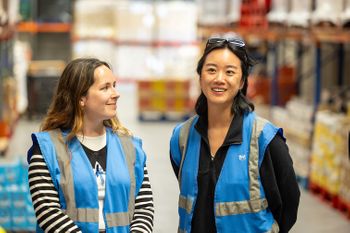
Addressing Sustainability Challenges with Practical and Innovative Solutions at Trinity College Dublin
In recent years, the importance of sustainability has become a central focus for universities across Europe, and Trinity College Dublin stands out as a leader in fostering young talent to tackle real-world environmental issues. Through engaging student-driven projects, Trinity equips its students with the knowledge and skills necessary to develop impactful environmental solutions that address pressing challenges such as food waste, water conservation, and urban farming. This approach not only prepares students for future careers but also contributes to global efforts towards a sustainable planet.
Empowering Students to Contribute to Environmental Solutions
At Trinity College Dublin, students enrolled in programs like the Masters in Global Challenges for Sustainability under the CHARM-EU alliance are immersed in real-world problem-solving activities. The university’s commitment to practical learning is exemplified through initiatives like the XHIBIT program, which engages students directly with local organizations on sustainability challenges. This program provides an excellent platform for students to develop innovative strategies that can make tangible differences in their communities and beyond.
Collaborations with Dublin-Based Organizations
Through partnerships with organizations such as Teagasc, FoodCloud, and Airfield Estate, Trinity students gain firsthand experience of the environmental issues faced by urban and rural communities. For example, students work on reducing food waste with Teagasc and improving urban farming practices by sharing strategies learned at Airfield Estate. These collaborations foster an environment of transdisciplinary learning, where scientific theory is combined with practical application to develop actionable solutions.
Developing Sustainable Urban and Rural Food Systems
One of the core challenges addressed by students is reducing food loss and promoting plant-based diets. Innovative marketing strategies are proposed to decrease food waste, while strategies to replace single-use water bottles are devised to promote sustainable consumption on campus. These solutions are designed to be scalable and adaptable, illustrating how university-led initiatives can influence broader societal habits around sustainability.
Student-Led Innovations in Water and Waste Management
Another significant area of focus is waste management and resource conservation. Students work on projects that aim to change public attitudes towards waste, improve waste segregation practices, and reduce reliance on single-use products. For example, some teams develop community engagement campaigns to foster better waste practices, while others propose technological solutions to optimize waste collection and reuse, demonstrating how innovative thinking can lead to more sustainable urban living.
Addressing Water Conservation at Healthcare Facilities
Reducing water loss at medical facilities such as St James’s Hospital is another key project. Students analyze water usage patterns and recommend measures for water saving and reuse, contributing to the hospital’s environmental sustainability goals. These efforts reflect the practical application of sustainability principles in sensitive settings, balancing health care needs with ecological responsibility.
Innovations in Sustainable Building and Urban Farming
Beyond resource management, students explore ways to make buildings more eco-friendly and energy-efficient. Projects include developing guidelines for the sustainable renovation of protected buildings and sharing urban farming practices to improve local food security. These initiatives highlight the importance of integrating sustainability into urban planning and architecture, helping to shape resilient and sustainable cities for the future.
Sharing Knowledge for a Greener Future
In addition to developing strategies, students disseminate their findings through workshops, cultural activities, and community outreach, ensuring that their innovative solutions reach a wider audience. This knowledge-sharing component is vital for creating a culture of sustainability that extends beyond academic institutions to influence policymaking and community behavior.
Hands-On Learning and Interdisciplinary Approaches
One of Trinity’s strengths is its focus on experiential learning, which encourages students to think critically and act creatively. Visits to sites like Airfield Estate enable students to see sustainable farming in action, while workshops with industry experts enhance their understanding of environmental challenges and solutions. Such comprehensive engagement promotes interdisciplinary thinking—a crucial element in addressing complex sustainability issues.
Preparing the Next Generation of Environmental Leaders
Trinity College Dublin’s commitment to sustainability through student-led innovation exemplifies how academic institutions can play a pivotal role in global environmental efforts. By integrating practical projects, local partnerships, and interdisciplinary learning, Trinity prepares its students to be future leaders in creating sustainable and resilient communities. As climate change and resource scarcity continue to pose challenges worldwide, investing in education and innovation at universities like Trinity is essential for building a sustainable future.
If you are interested in contributing to environmental solutions and seeking a university that fosters practical engagement with real-world challenges, exploring programs like Trinity College Dublin’s Masters in Global Challenges for Sustainability can be an excellent step. Take the next step in your sustainability career today.

